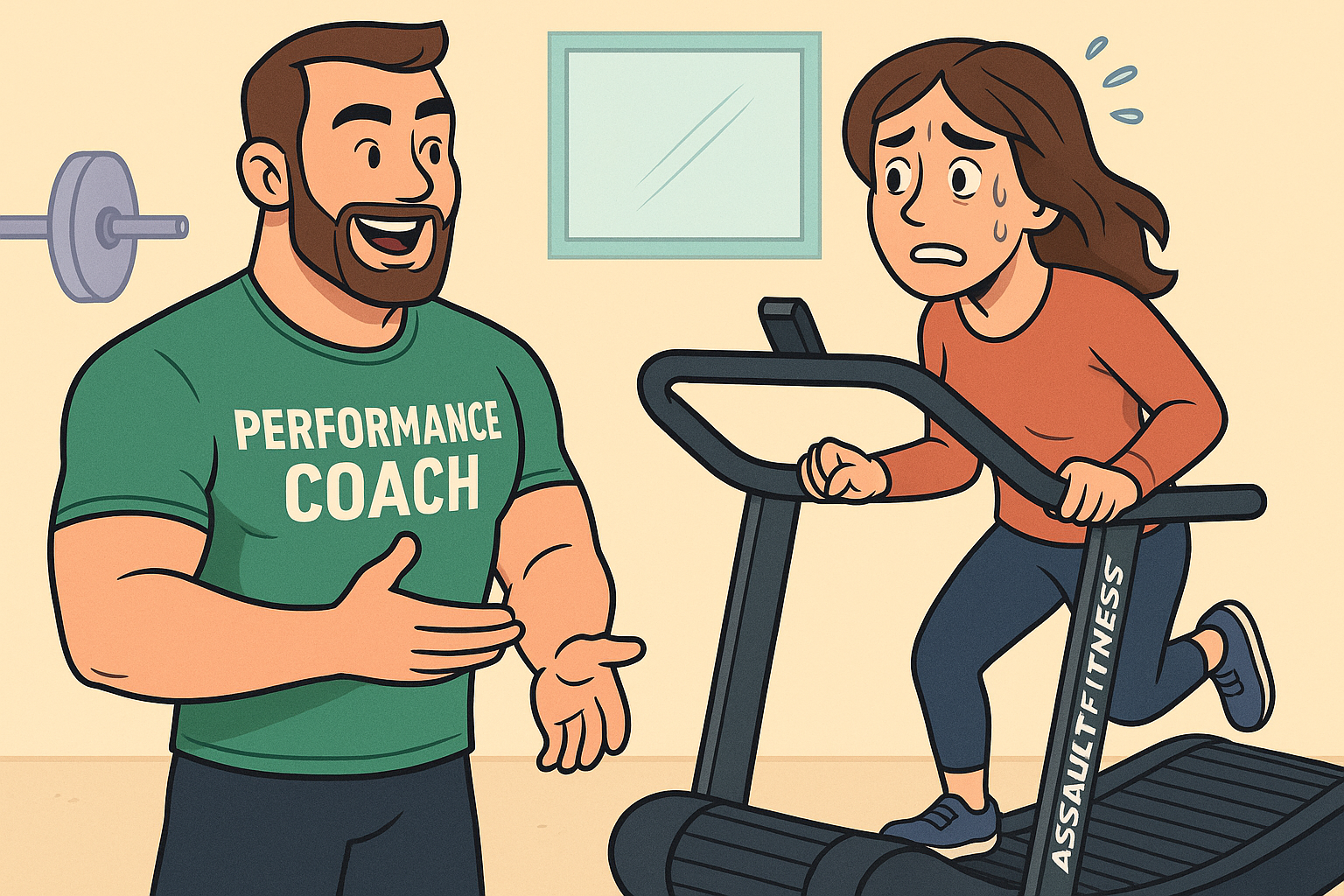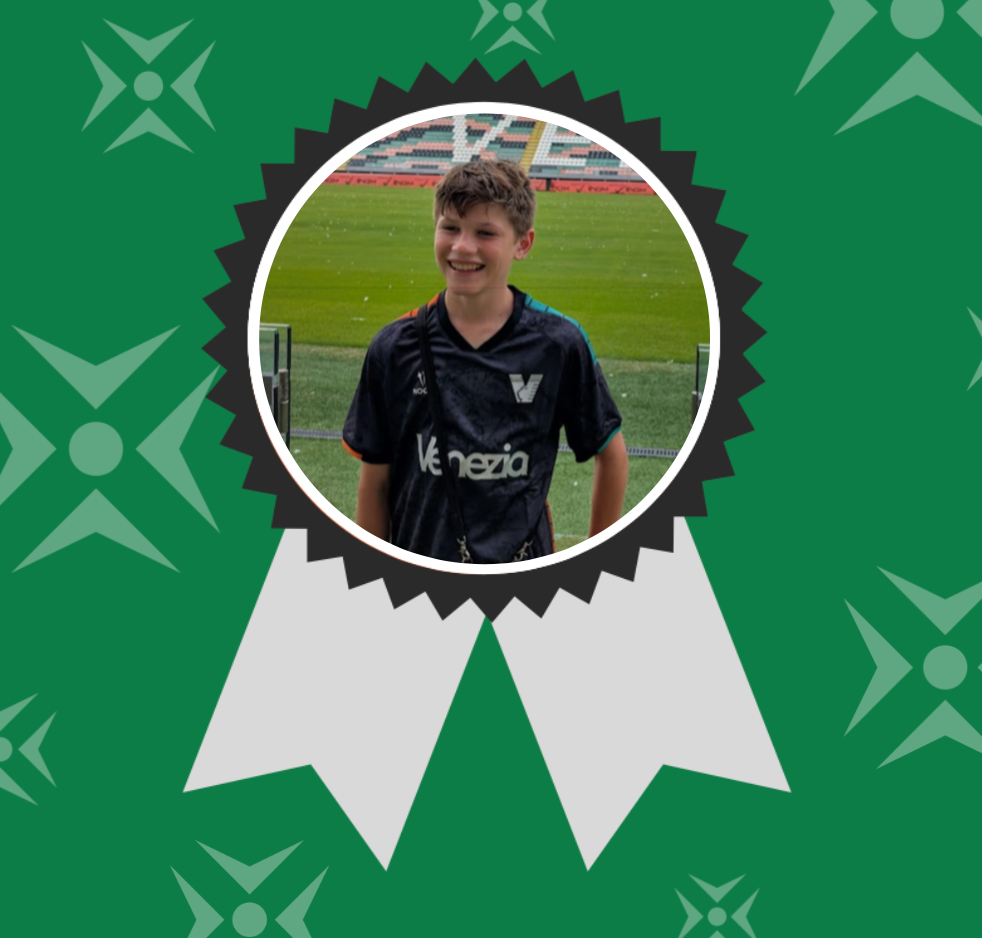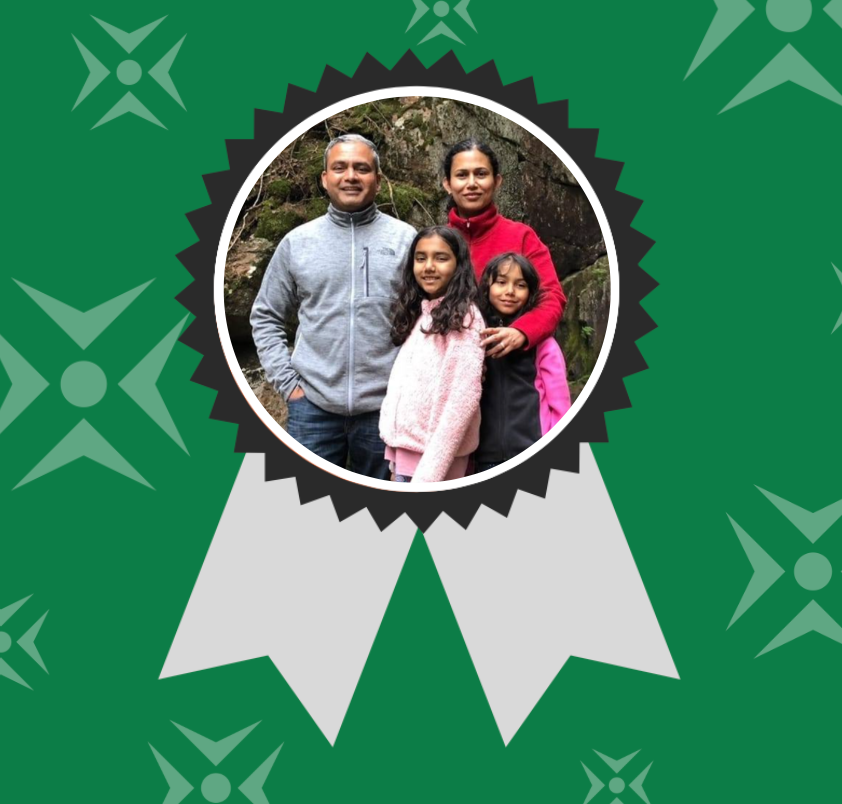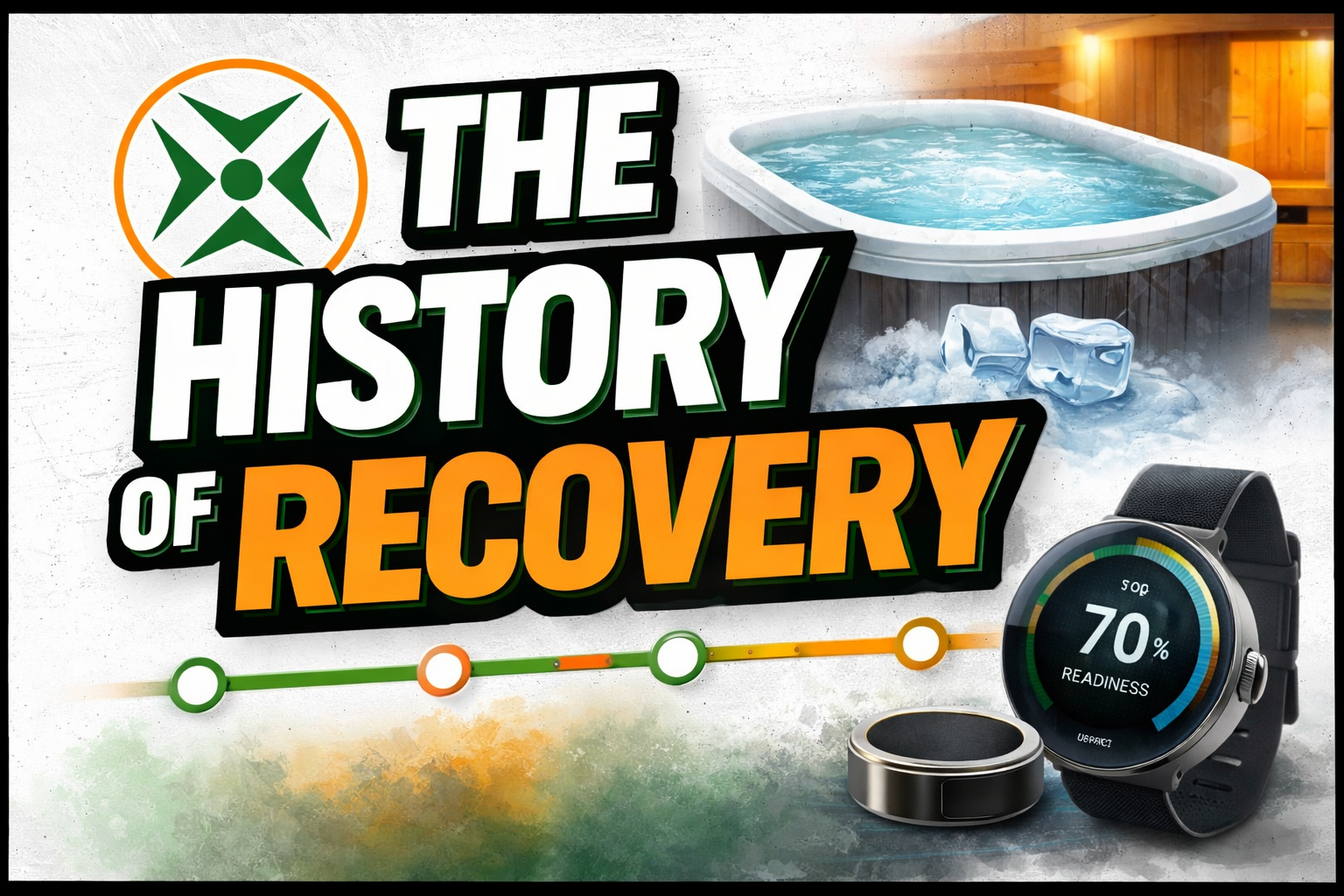What is Performance Coaching?
Mike Collette • May 20, 2025
A Glimpse Into the "Hard Reps" That Actually Matter

In the world of fitness, it’s easy to assume that coaching is just about reps, sets, and sweat. But the Performance Coaching program
we've developed at Prototype goes beyond that. It isn’t about chasing PRs—it's about rewiring the way people think, feel, and show up under pressure.
It's not therapy, but it is therapeutic. In essence, it's training the mind through the body.
At its core, Performance Coaching uses the gym here at Prototype as a "training arena"—a relatively low-risk environment where people can face discomfort, challenge self-limiting narratives, and build the kind of mental resilience that transfers directly into life outside the walls.
EVERYONE can use this but the approach is unique in some ways to that individual. When I say that i'll refer back to this notion of "what is normal?". We ALL have anxiety, some worse than others... we have all struggled with confidence. Some of us struggle on the opposite end, where there is an over confidence.
But what I'm continuing to find is that there are many ways to train working on this imbalance in the gym, so you can apply it to areas outside the gym. Emotions and feelings drive our action or inaction. Bringing that to light in a low risk environment and WINNING, creates earned confidence that you can apply outside of this arena.
Let me show you what this looks like in real time...
From "I Can't" to "I Can't Yet"
In a recent session, I worked with a client who has consistently described herself as someone who “prefers being told what to do.” Autonomy feels overwhelming in some cases, but not all. New tasks and challenges spark immediate resistance. As a for instance, doing workout on her own during open gym felt like a level 4 challenge on her personalized “hard mode” scale (we will come back to this scale).
So of course, we lean into it.
I started by having her walk on an Assault Treadmill—a task she initially avoided, convinced she couldn't run on it. She asked to switch to the Echo Bike. I gave her space, then encouragement, then just enough coaching. She didn’t just walk. She ran. And her language shifted—from “I can’t” to “I can’t yet.”
That single phrase change? It's a small example of growth. That’s mindset training doing its job.
On our established "Hard Mode" scale... this would be a 1 out of 4. It causes discomfort, limited anxiety but with consistent reps that dials down. A very low risk place to start.
Turning the Tables: Teaching as Exposure
Next, I introduced a higher-discomfort task: having her TEACH another member how to do an exercise.
When I introduced this scale several weeks back, this was unequivocally a 4. Think of this for many people as their own version of public speaking in a way.
As expected this was REALLY HARD.
All the protective language came out: “I don’t know how… I can’t… No, Mike.” The emotional wave hit: anxiety, resistance, a strong desire to leave. But we stayed with it. She coached—imperfectly, nervously, but she did it. And after?
We rapidly reflect:
"Obviously I felt better after. Next time I’ll use it to better myself—not get stuck in embarrassment."
That’s not just confidence building. That’s narrative transformation.
Why This Works: Courage Reps and the SAID Principle for the Mind
What we did wasn’t random—it was based on a deliberate model we've been building here at Prototype:
RAMP Scaling:
We co-created a scale from Level 1 (dropping a barbell mid-set) to Level 4 (coaching someone else). This allowed her to visualize where she was and choose reps that challenged—but didn’t paralyze—her.
Graduated Exposure:
We used small, successful reps (like the treadmill) to build toward higher-stakes ones (teaching). Each success anchored belief that she could face discomfort and come out stronger.
Mental SAID Principle:
Just like muscles adapt to load, minds adapt to fear and stress through repeated exposure. SAID in exercise physiology refers to this concept of "Specific Adaptation to Imposed Demands"-your body adapts to the stress you put on it. The soreness she felt after trying new physical movements mirrored the growing pains of mental rewiring.
Practical Tools: Language, Reflection, and Story Work
We don’t just train the body. We track patterns:
Negative self-talk → Growth mindset reframes
Avoidance behavior → Voluntary reps
Emotionally charged reflection → Calm awareness
We’re also creating a “Courage Evidence Board”—a place to log all the “I can’t” moments she’s moved through. Echo bike. Treadmill. Coaching. AND specific examples where this shows up OUTSIDE of the gym. All reps that prove her discomfort isn’t predictive—it’s just the start of growth.
So What Is Performance Coaching, Really?
It’s not just showing up to move. It’s showing up to shift.
In this case, it's about helping someone walk into the gym with fear—and walk out with proof that they can do hard things.
It’s about using the physical domain to train resilience, confidence, and self-awareness.
It’s about building a library of evidence—reps of courage—that slowly but powerfully change what someone believes is possible.
Final Thoughts
I believe Performance coaching is for everyone, but not every approach will work for anyone. Growth, however, is universal for anyone who wants it. Again, this isn't about developing physical strength or improving VO2 max... those may be byproducts, this is about finding areas and opportunities to train the mind through the body.
Think of this for yourself if you're reading this...the next time your son/daughter/friend or even yourself says “I can’t,” don’t rush to fix it. Start with this as a reflective opportunity to explore that narrative, and you can find opportunities to build the bridge from “I can’t” to “I did.”
And remember: "The speed you bounce back from something HARD is your current capacity to recover."
My goal is to help more people raise that capacity—one rep at a time.
Disclaimer:
This post reflects the principles of performance coaching, NOT therapy. While the coaching process may surface emotional resistance or personal narratives, we are not licensed therapists, and this work is not a substitute for clinical mental health care. True therapeutic support is essential for many, and I deeply respect the role it plays. What we do in performance coaching is help people build awareness, develop resilience, and shift behavior patterns through structured physical challenges and mindset reflection in a safe, supportive environment.
If you're facing significant emotional or psychological challenges, please seek help from a licensed mental health professional.
Previous Blogs

Enzo is a standout part of the Prototype community—supportive, determined, and a pleasure to be around. His commitment to consistency, camaraderie, and long-term progress makes him a perfect example of what PTS is all about. Below he answers some questions and shares his experience. Share your experience at Prototype—favorite memories, moments, or stories or what’s your favorite part/what do you look forward to? When I first went to the gym, coming from the Nike camps, being at a real gym was a great experience. The coaches were all excellent and helped with my growth. Who at Prototype has made the biggest impact on you and why? Steve Cimino - has coached me 1 on 1 and continues to build out my program at the gym. What are your hobbies and activities outside the gym? Soccer, and more soccer. I also ski in the winter. How has Prototype helped you or solved a problem for you? It has made me better for sports for overall speed and strength, this translates to my soccer programs. What are your current fitness goals? To get faster on the soccer field. Favorite Quote No quote, but I like movies.

Sharang is a standout part of the Prototype community—steady, positive, and always putting in the work—and his commitment to consistency, camaraderie, and long-term progress makes him a perfect example of what PTS is all about. Below he answers some questions and shares his experience. Share your experience at Prototype—favorite memories, moments, or stories or what’s your favorite part/what do you look forward to? What stands out most about Prototype is the camaraderie. The members, especially in the 7AM and Noon classes, create a great balance of fun and focus. Everyone is friendly and supportive, but when it’s time to work, people take the WODs seriously and push themselves to improve. That combination can be hard to find. All the coaches play a huge role in setting that tone. My favorite moments are the everyday ones i.e. showing up, putting in the work together, leaving class feeling accomplished. What I look forward to most is continuing to train alongside people who genuinely enjoy the process and want to get better. “Because summer’s coming.” Who at Prototype has made the biggest impact on you and why? As a dad of two young daughters, the people who’ve made the biggest impact on me at Prototype are the women in the gym. They all train with confidence, strength, consistency and set a powerful example. It’s the kind of environment I hope my daughters grow up seeing where strength is normal and earned. What are your hobbies and activities outside the gym? I dabble a bit in photography, star gazing and love to travel. Playing atrocious golf. How has Prototype helped you or solved a problem for you? Prototype has helped me stay active. There’s a real sense of happiness and accomplishment after each workout, and that feeling has become addictive in the best way. Knowing I’ll leave class feeling stronger, physically and mentally, keeps me coming back. Prototype has turned working out from something I should do into something I genuinely want to do, which has made a huge difference in maintaining a sustainable fitness routine. What are your current fitness goals? Steady progress and longevity. If I can keep lifting, moving well, and feeling good years from now, I’ll consider that a win. I hope my future self will thank my present self. Favorite Quote If you can’t explain it simply you don't understand it well enough.
Climb to New Heights
Prototype Training Systems is more than a gym - it is a lifestyle. Join us today!


